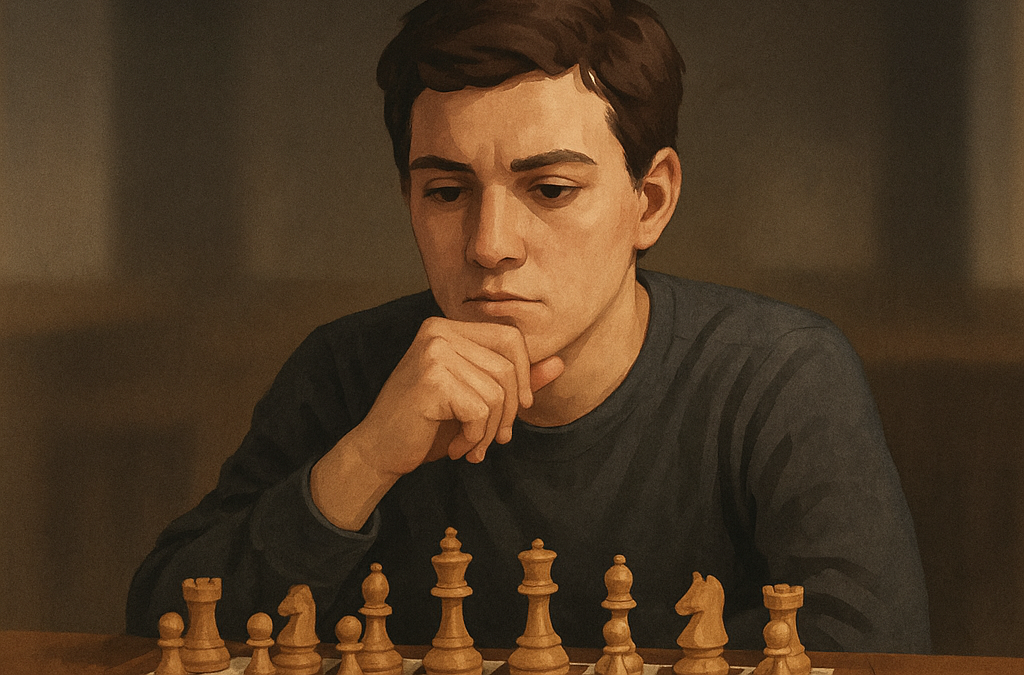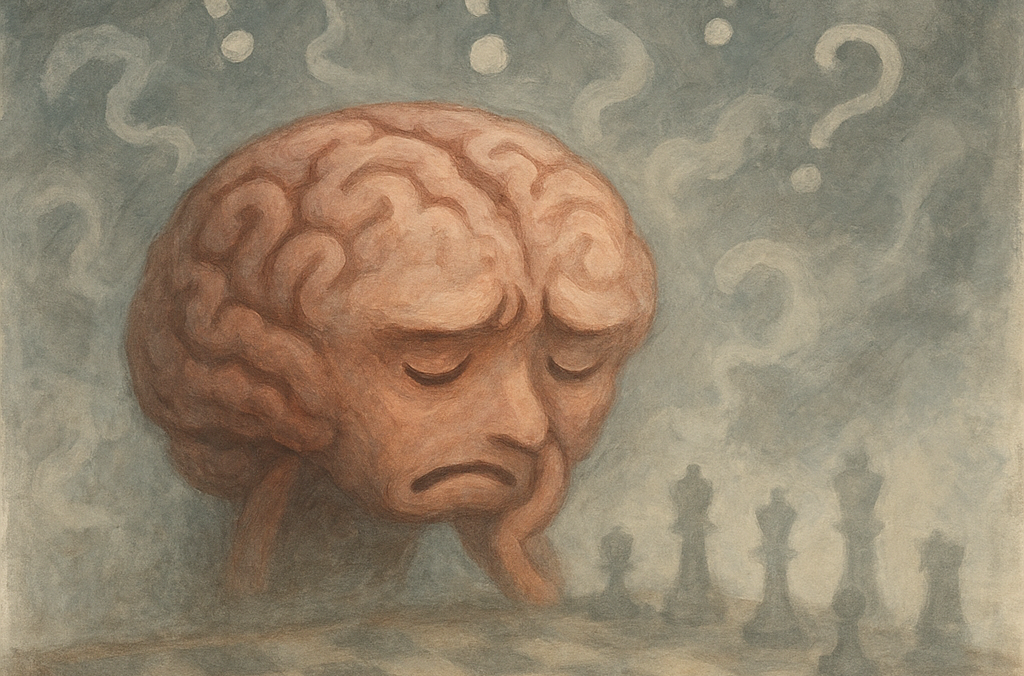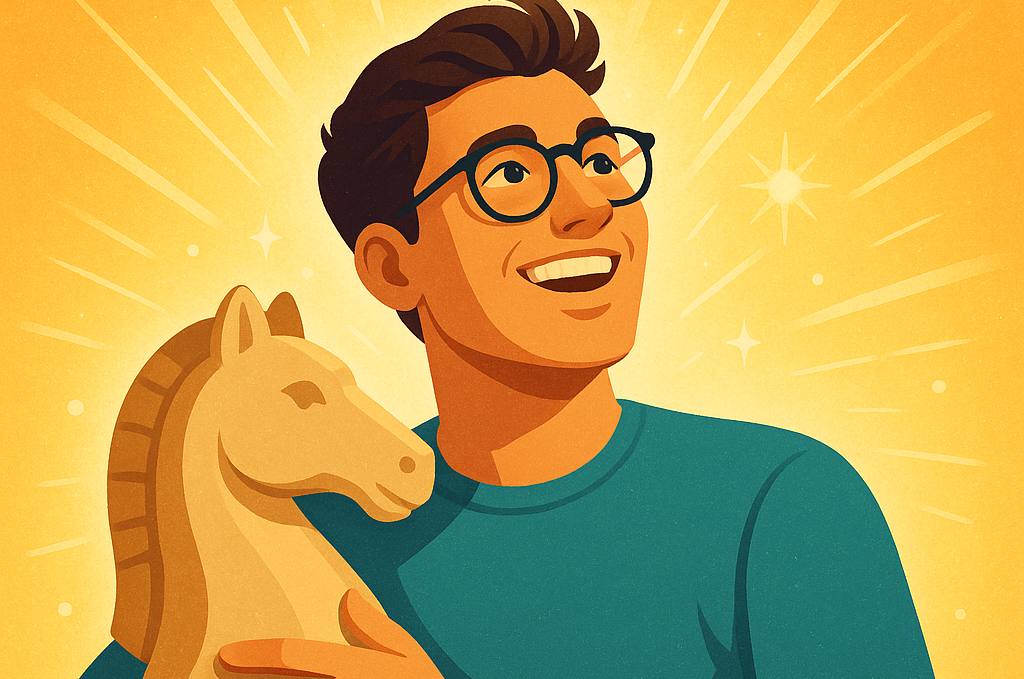What most people say:
"While it is very impressive, it is also very challenging!"
It is true that learning to play chess blindfolded might be a daunting task, let alone learning chess in the first place! Learning to play blindfolded actually has a lot of benefits to the growth of a serious chess player. But first lets see why some people tend to lose interest or don't want to learn.
Why people give up:
- Mental Overload! - Trying to keep track of all of the pieces and possible moves and overload a new player who is trying to start the learning process.
- Frustration! - Practicing even though you don't like the learning curve can cause patience to run out causing frustration.
- It takes too long! - Even for those who do have a lot of patience it just seems that it will never be possible no matter how much you try.
It is all to common for every single one of us to at some point feel these things listed above. So the question rises, with all of these challenges that I will face, is it worth it to learn to play Chess blindfolded? Lets take a look at why it can greatly improve a serious player.
1. Strategy
Repaticious practice of playing chess and using puzzles that strengthen your mempory will help to you strategize. Many people will look at their board and instantly get tunnel vision on a specific move. Leaning how to memorize the board little by little can help you remember important pieces and look for patterns when playing chess. This will help you to make good decisions when makeing a move to either attack or go on the defense.
2. Visulization
One of the hardest parts of learning to play Chess blindfolded is visualizing the board. Not only having to memorize the pieces, but just knowing where each square is mentally can be a challenge. To play blindfolded chess, this is a requirement in order to play good. This takes patience and practice. And when you do start to get the hang of it, you will start to see how easier it is to see and look at a board when playing normal chess. A good help for leanrning the board is to practice the puzzle we have called "Space Location". This will help you pinpoint every location on the board making it easier for you to learn visualization.
3. Concentration
Many people have a hard time thinking of every single scenerio and what the outcomes can be. This often leads to loosing your concentration and making a move that isn't very well thought out. When combining your board visualization and your piece memory this will help you go though scenerios even faster, coming up with more clever solutions as you are able to comprehend more in a quicker amount of time and in turn, improving your concentration even in stressful ternaments.

Summary
Although it is difficult to learn Chess Blindfolded, we must remember that learning anything new comes with many challenges. The point to remember is to NEVER give up. This not only helps you improve your Chess skills but also helps you build up patience & perserverance during other challenges you may encounter when learning something new in your life. When sticking to learning your space locations, piece placements, and putting in good practice, you will succeed in Chess!


